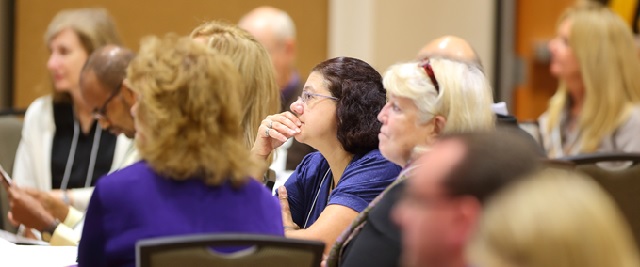
Complete Schedule
Presentation Type
Open Access Panel Presentation
Keywords
Cheating (Education); Cheating (Education)--Prevention;
Abstract
A core classroom value for many college and university instructors is academic integrity and honesty. Instructors often employ a range of strategies to strengthen academic integrity and limit academic dishonesty in their individual courses. By bringing together panelists from a variety of disciplines and professional experiences, who teach a range of courses in diverse formats, levels, and sizes, this panel aims to generate a discussion about how to support a culture of academic integrity. We will address these issues based on how we think about academic integrity and dishonesty, our discipline or course specific concerns, our physical and institutional environments, and our experiences with students and other members of our communities. Ultimately, it is worth noting that cultivating academic integrity within each individual classroom is but one dimension of strengthening and sustaining a broader culture of integrity in the academic communities of which we are a part. In keeping with the spirit of strengthening a broader culture of integrity, this session will include opportunity for discussion and synthesis with the audience.
Start Date
18-9-2015 3:15 PM
End Date
18-9-2015 4:15 PM
Event Host
Center for Academic Ethics, University of Northern Iowa
Department
Department of Philosophy and World Religions
Department
School of Health, Physical Education, and Leisure Services
Copyright
©2015 Abbylynn Helgevold, Jennifer Waldron, Disa Lubker Cornish, Brittany Flokstra, and Craig VanSandt
File Format
application/pdf
Recommended Citation
Helgevold, Abbylynn; Waldron, Jennifer; Cornish, Disa Lubker; Flokstra, Brittany; and VanSandt, Craig, "Enhancing Academic Integrity and Facing Academic Dishonesty Afternoon Plenary Session & Wrap-Up" (2015). Ethics Conference. 20.
https://scholarworks.uni.edu/ethicsconf/2015/all/20
Enhancing Academic Integrity and Facing Academic Dishonesty Afternoon Plenary Session & Wrap-Up
A core classroom value for many college and university instructors is academic integrity and honesty. Instructors often employ a range of strategies to strengthen academic integrity and limit academic dishonesty in their individual courses. By bringing together panelists from a variety of disciplines and professional experiences, who teach a range of courses in diverse formats, levels, and sizes, this panel aims to generate a discussion about how to support a culture of academic integrity. We will address these issues based on how we think about academic integrity and dishonesty, our discipline or course specific concerns, our physical and institutional environments, and our experiences with students and other members of our communities. Ultimately, it is worth noting that cultivating academic integrity within each individual classroom is but one dimension of strengthening and sustaining a broader culture of integrity in the academic communities of which we are a part. In keeping with the spirit of strengthening a broader culture of integrity, this session will include opportunity for discussion and synthesis with the audience.



Comments
Location: Maucker Union - Ballroom A, B, & C